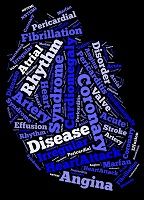Article
Top 10 Heart, Stroke Advances
Author(s):
It's been a good year for heart disease and stroke research. An expert panel chosen by the American Heart Association and American Stroke Association recently named 2014's most significant research news events.

It’s been a good year for heart disease and stroke research. According to an expert panel chosen by the American Heart Association and American Stroke Association, 2014’s most significant research news events were as follows:
Bariatric surgery improves blood sugar control in obese people with Type 2 diabetes.
The study known as STAMPEDE showed that 3 years after weight-loss surgery, patients had a reduced need for medications and better quality of life. Patients did better than they would have with just medical management.
Renal denervation does not lower resistant high blood pressure.
Though a report on the treatment drew criticism, the SIMPLICITY HTN-3 study did no better than a sham procedure at achieving the desired result.
Stroke patients have better clinical outcomes and get tissue plasminogen activator faster when they are treated in a healthcare system where there is a collaborative approach to stroke treatment that includes pre-hospital care.
Two studies, Target-Stroke and PHANTOM-S reached that conclusion.
Computer technology was put to work in 2 significant discoveries.
Using a “heart on a chip” model, researchers linked a single mutation to changes in the heart cells of children with a rare disorder. Others used “big data” to learn how 2 genes influence blood vessels after stenting. Both led to the use of promising experimental treatments.
A promising mouse study on PCSK9 with in vivo CRISPR-Cas9 genome editing showed a single injection lowered cholesterol by 35%.
If humans respond the same way as the mice, they too could benefit from a treatment that increased the liver’s ability to remove LDL cholesterol from the body.
Researchers came up with highly sensitive blood test that finds early heart damage in diabetics.
The finding may lead to earlier monitoring of these patients and more aggressive earlier treatment. The experiment drug LCZ696 did better than enalapril in treating heart failure patients. The PARADIGM-HF study found the angiotensin-neprilysin inhibitor reduced deaths and hospitalizations in these patients.
Extending dual antiplatelet therapy helps prevent second heart attacks.
The treatment also slightly increases the risk of bleeding. Researchers presenting the studies at the American Heart Association Scientific Sessions in Chicago in November said the benefits appear to outweigh the negatives. They said that is what their two studies found. But European researchers looked at the same data and said they aren’t so sure.
No protective effect from aspirin.
Despite the popular belief that an aspirin a day wards off heart attacks, a large-scale study in Japan showed that in people over 60 with atherosclerosis risk factors, taking daily aspirin had no impact on preventing heart attacks or strokes.
Losartan, an angiotensin receptor blocker, did no better than beta-blocker atenolol is treating pediatric patients with Marfan’s syndrome.
The disappointing results at least gave physicians some guidance in treating these patients.
The AHA and ASA’s annual list is an 18-year old tradition. The groups’ full stories on this year’s top 10 can be found here.




